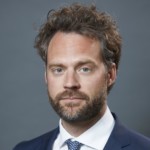Sammanfattning
Venezuela needs a transition government with both pro-Maduro and anti-Maduro forces. Its function would be to renew the electoral institutions and negotiate a power-sharing agreement in order to lower the power stakes by protecting political minorities. Only then can presidential elections be held.
The Venezuelan crisis has hit a tipping point. Having become deeply unpopular even in low-income neighbourhoods, Nicolás Maduro is escalating repression. His political survival now depends on the armed forces, whose backing he can no longer take for granted. There are increasing signs of fracture, including defections and pronouncements by military officials against Maduro.
The armed forces have enjoyed economic privileges under the Maduro regime, but these are about to dwindle. As the US sanctions against the Venezuelan oil company PDVSA take effect, Maduro will struggle to pay off the military, as well as the less disciplined pro-government paramilitaries known as ‘colectivos’. At the same time, Maduro is losing control of Venezuelan assets abroad, as more countries endorse Juan Guaidó as Venezuela’s legitimate interim president.
Even China has hinted that its support for Maduro may not be everlasting. Estimated to have provided over $65 billion in credit to Venezuela, China is concerned that an opposition-led government would refuse to fully honour those loan commitments. Yet the opposition now appears prepared to enter into talks with China and provide some guarantees of debt repayments.
Cuba and Russia are the only major players still openly backing Maduro. Cuban intelligence and military officials are deployed in Venezuela, helping to monitor dissent and protect Maduro. However, it remains unclear how long Cuba will be willing to continue backing Maduro, as he becomes more and more isolated and unable to pay for these services.
Increasingly, Maduro is relying on Russia for support. Russian mercenaries are reported to have travelled to Venezuela to strengthen the Presidential Guard. Russia is also estimated to have given Venezuela $17 billion in loans in exchange for oil and gas resources and a geopolitical foothold in the region considered by the US to be its ‘backyard’. Yet Russia can hardly afford to be Venezuela’s lender of last resort. Its $5 billion credit to Venezuela in January 2019 was only to bankroll an earlier loan and involved no new money. Guaidó’s assumption of control of CITGO, PDVSA’s US-based affiliate, was also a major setback for Russia, as it had been used as collateral for a Russian loan.
The military establishment fears prosecution and economic loss, should Maduro fall. This fear is the main hindrance to regime change. To dispel such worries, the opposition has promised amnesty to all military officers defecting from the regime, as long as they are not guilty of crimes against humanity. Still, some generals may fret over indictments prepared by the International Criminal Court, which would remain in effect, or criminal prosecutions prepared by other governments on drug trafficking charges. What is more, considering the immense profits enjoyed by the military’s top brass, it may take more than an amnesty to convince them to jump ship.
US President Donald Trump has insisted on keeping the military option on the table. Nonetheless, a US military intervention in Venezuela is fraught with risks and would be broadly condemned by the international coalition now backing the Venezuelan opposition. It would weaken the credibility of the democratic opposition and exacerbate Venezuela’s political polarization. At worst, it could lead to a protracted violent conflict, with military and paramilitary elements loyal to the Maduro regime, possibly backed by Cuba and Russia, conducting a campaign against the new government.
The Venezuelan crisis needs a negotiated solution. To this end, the military’s top brass need to be bought off with guarantees of constitutional protection, institutionalized autonomy and economic revenue. A transitional government can then be formed with representatives of both political camps. Including Chavistas in the transitional government is important in order to prevent them from acting as spoilers in the process of re-democratization. The presence of a large number of die-hard paramilitary groups, who remain loyal to Maduro, makes any un-negotiated solution a precarious scenario.
For re-democratization to take root, a power-sharing agreement will have to be negotiated that will return political power to the National Assembly, establish joint management of its committees, liberate all political prisoners and renew the Supreme Court of Justice, together with credible guarantees that current regime leaders will not be persecuted. Amendments to the current constitution should also be made, lowering the power stakes by establishing a system of strong checks and balances, together with special guarantees for protecting the rights of political minorities.
The electoral system will also have to be renewed to guarantee competitive elections and restore trust in the democratic process. This means appointing a new National Electoral Council, appointing non-partisan municipal electoral boards, and updating the electoral registry, including ensuring full voting rights for the millions of Venezuelans that have left the country. The organization of the polling centres will need to be reviewed, allowing for international observers and technical inspections of the voting platform.
Revamping the electoral system will take at least six months, during which time the power-sharing agreement must be negotiated. The international community can help in facilitating these negotiations, for instance by cancelling sanctions selectively whenever the Chavista group proves that it is participating in good faith. It should also help recover illegally acquired wealth for a Recovery Fund, to be managed by the transition government after it has been formed. The international financial institutions should convene an international conference to help with the stabilization of Venezuela’s economy and the rebuilding of its infrastructure.


